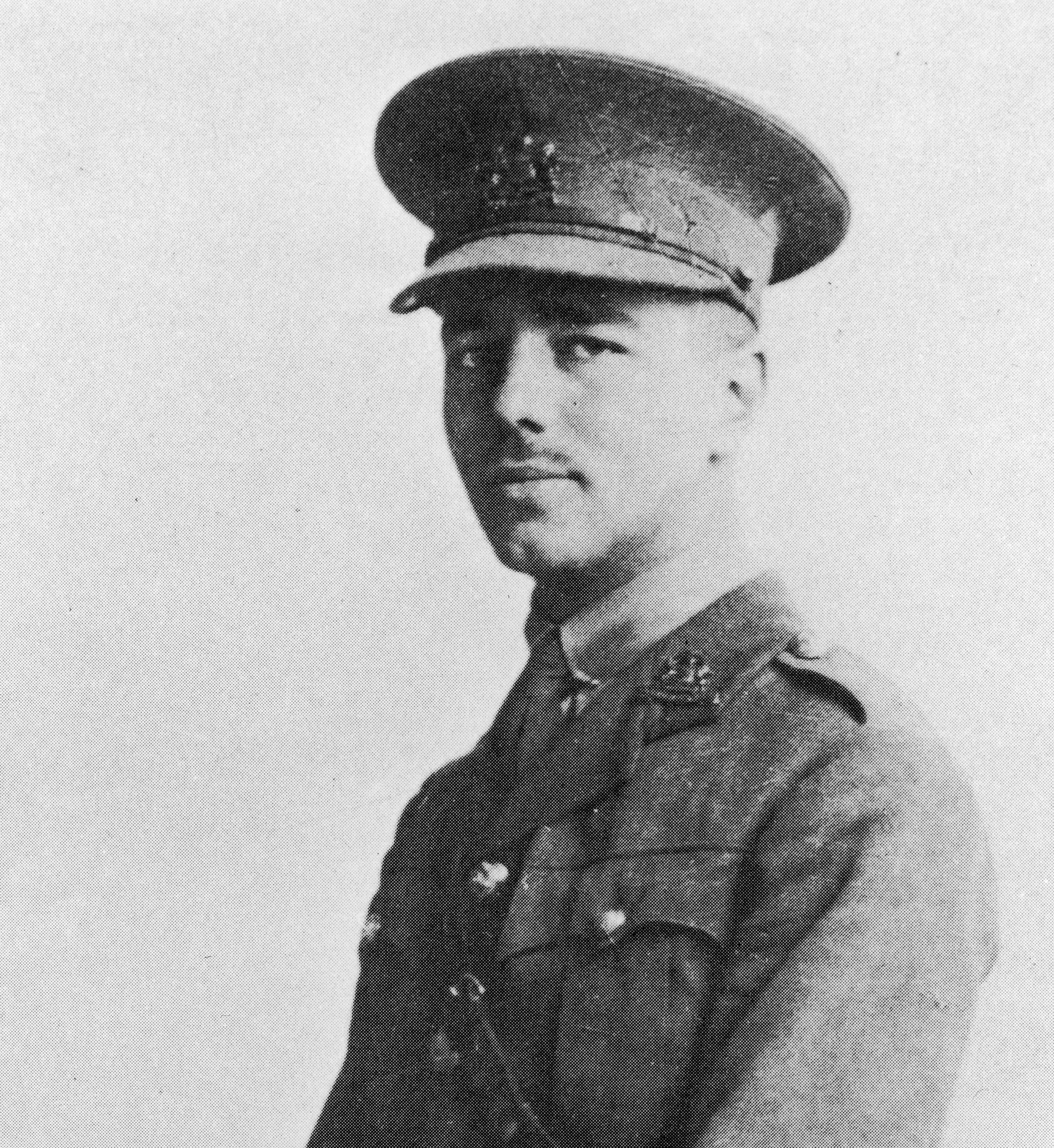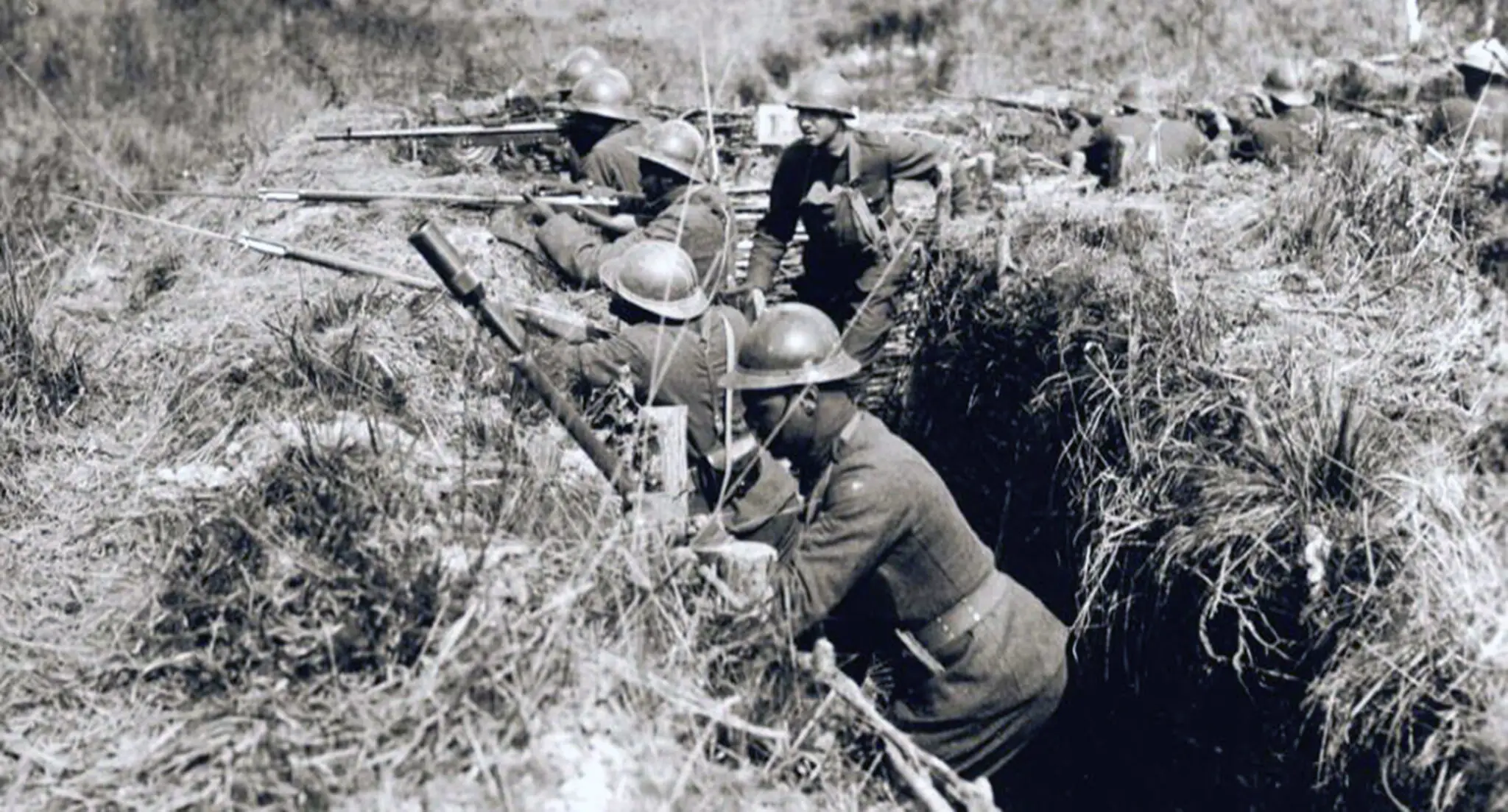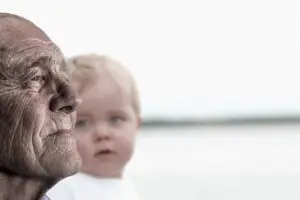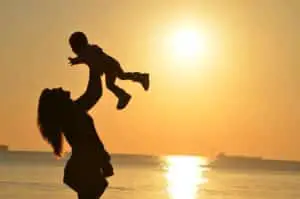
FULL POEM - SCROLL DOWN FOR LINE-BY-LINE ANALYSIS
Our brains ache, in the merciless iced east winds that knive us . . .
Wearied we keep awake because the night is silent . . .
Low drooping flares confuse our memory of the salient . . .
Worried by silence, sentries whisper, curious, nervous,
But nothing happens.
Watching, we hear the mad gusts tugging on the wire,
Like twitching agonies of men among its brambles.
Northward, incessantly, the flickering gunnery rumbles,
Far off, like a dull rumour of some other war.
What are we doing here?
The poignant misery of dawn begins to grow . . .
We only know war lasts, rain soaks, and clouds sag stormy.
Dawn massing in the east her melancholy army
Attacks once more in ranks on shivering ranks of grey,
But nothing happens.
Sudden successive flights of bullets streak the silence.
Less deadly than the air that shudders black with snow,
With sidelong flowing flakes that flock, pause, and renew,
We watch them wandering up and down the wind’s nonchalance,
But nothing happens.
Pale flakes with fingering stealth come feeling for our faces—
We cringe in holes, back on forgotten dreams, and stare, snow-dazed,
Deep into grassier ditches. So we drowse, sun-dozed,
Littered with blossoms trickling where the blackbird fusses.
—Is it that we are dying?
Slowly our ghosts drag home: glimpsing the sunk fires, glozed
With crusted dark-red jewels; crickets jingle there;
For hours the innocent mice rejoice: the house is theirs;
Shutters and doors, all closed: on us the doors are closed,—
We turn back to our dying.
Since we believe not otherwise can kind fires burn;
Now ever suns smile true on child, or field, or fruit.
For God’s invincible spring our love is made afraid;
Therefore, not loath, we lie out here; therefore were born,
For love of God seems dying.
Tonight, this frost will fasten on this mud and us,
Shrivelling many hands, and puckering foreheads crisp.
The burying-party, picks and shovels in shaking grasp,
Pause over half-known faces. All their eyes are ice,
But nothing happens.

LINE-BY-LINE ANALYSIS
STANZA 1
Our brains ache, in the merciless iced east winds that knive us . . .
Wearied we keep awake because the night is silent . . .
The opening two lines immediately depict the soldiers as hurt and vulnerable, victims of the hostile environment, attacked physically by the ‘iced east winds’ and mentally by the ‘silent night’.
Low drooping flares confuse our memory of the salient . . .
Worried by silence, sentries whisper, curious, nervous,
But nothing happens.
‘Salient’ is a military term for a battlefield feature projecting into enemy territory. Owen’s use of this military term provokes an image of war and the resulting brutality imposed on the soldiers. The theme of mental torment as a result of the conflict continues as Owen captures the soldiers’ paranoia – with their fear of the silence being greater than their fear of death and destruction.
STANZA 2
Watching, we hear the mad gusts tugging on the wire,
The repetition of verbs and the personification of the wind ‘tugging on the wire’ juxtaposes the eerie calmness of the night with what the reader preconceives about war.
Like twitching agonies of men among its brambles.
The simile likens the force of the wind to the physical agony experienced by the men during conflict. Although calm and more emotionally than physically brutal, Owen reminds the reader of the physical torment of war.
Northward, incessantly, the flickering gunnery rumbles,
Far off, like a dull rumour of some other war.
These two lines describe the distant, consistent raging war in the background. Literally, it portrays how sustained war is and metaphorically how it continues to always be in the mind of the soldiers.
What are we doing here?
This rhetorical question gives the reader a glimpse into the psyche of the soldiers – alluding to their feeling of desperation and despair.
STANZA 3
The poignant misery of dawn begins to grow . . .
The opening to stanza three is tragically ironic. In literature, dawn is usually a metaphor for new life and new beginnings, but Owen flips this on its head, instead portraying the despair of the men as they have to face another day of pain and sorrow.
We only know war lasts, rain soaks, and clouds sag stormy.
Dawn massing in the east her melancholy army
Attacks once more in ranks on shivering ranks of grey,
Owen personifies dawn and the sunrise as an army, battling against the night sky that is being replaced by the day. The imagery of ‘grey’ represents death and the loss of life that night and the adjective ‘melancholy’ for the sunrise links to the idea of a depressing new day.
But nothing happens.
This repeated line (refrain) is a metaphor for Owen’s belief that war is a futile loss of life and will never lead to true resolve.
STANZA 4
Sudden successive flights of bullets streak the silence.
The sibilance in this line has an onomatopoeic effect of making the sounds of the battlefield more relatable to the reader, bringing them into the narrative. This adds to the rapid and dangerous nature of events that juxtapose the preceding calm.
Less deadly than the air that shudders black with snow,
Surprisingly, Owen compares the hostile weather conditions as more dangerous than the bullets themselves. Mother nature is the greatest enemy of the men – perhaps their punishment for their involvement in the war.
With sidelong flowing flakes that flock, pause, and renew,
We watch them wandering up and down the wind’s nonchalance,
The calm, gentle personification of the snowflakes ‘wandering’ up and down in the wind seems calm and harmless which juxtaposes the brutality of nature seen in the previous line. How does something so delicate pose such a threat to the men? It’s another cruel, twisted reality of war.
But nothing happens.
STANZA 5
Pale flakes with fingering stealth come feeling for our faces—
We cringe in holes, back on forgotten dreams, and stare, snow-dazed,
The personification of the weather emphasises its brutality and the suffering inflicted on the soldiers. The adjective ‘stealth’ adds to this, describing the weather as malicious and cunning.
Deep into grassier ditches. So we drowse, sun-dozed,
Littered with blossoms trickling where the blackbird fusses.
These two lines describe what the soldiers are contemplating – a better life in peacetime and Owen utilises the juxtaposition between the weather of their dreams and the reality to highlight the contrast between the life the soldiers are dreaming of and the one they are suffering through.
—Is it that we are dying?
STANZA 6
Slowly our ghosts drag home: glimpsing the sunk fires, glozed
With crusted dark-red jewels; crickets jingle there;
For hours the innocent mice rejoice: the house is theirs;
Shutters and doors, all closed: on us the doors are closed,—
We turn back to our dying.
This stanza once again gives the reader a glimpse into the mind of the soldiers, longing for a life not consumed by war. The image of ‘ghosts’ continues the tone of death and despair, however, the light of the ‘sunk fires’ is a metaphor for a sense of hope in their dreams amongst the overwhelming sense of doom. Tragically, however, the ‘doors [to this life] are closed’ to the soldiers, in other words, this life they are dreaming of is inaccessible to them, forcing them to be confined to the battlefield and to ‘turn back to [their] dying’.
STANZA 7
Since we believe not otherwise can kind fires burn;
Now ever suns smile true on child, or field, or fruit.
The imagery of burning ‘fires’ and the ‘sun’ again offer a sense of hope, which is perhaps futile by the extent to which it juxtaposes the coldness of the soldiers’ current reality.
For God’s invincible spring our love is made afraid;
Therefore, not loath, we lie out here; therefore were born,
For love of God seems dying.
These three lines describe how the faith of the soldiers in God has waned as a result of the tragedy they have witnessed and been subject to. As their sense of faith dies, their hearts or ‘love’ grow more afraid.
STANZA 8
Tonight, this frost will fasten on this mud and us,
Shrivelling many hands, and puckering foreheads crisp.
These two lines depict the tragic death of the soldiers as they finally succumb to the elements. The frost is personified as fastening the soldiers to the ground, almost engulfing them and suffocating the life out of them. The verb ‘shrivelling’ illustrates the vulnerability and fragility of the soldiers as they die, a verb associated with the elderly and frail – the war has sucked the vitality out of the soldiers.
The burying-party, picks and shovels in shaking grasp,
Pause over half-known faces. All their eyes are ice,
The burying-party arrives to collect the bodies of the soldiers and take them to their graves. ‘Half-known faces’ is a sinister image – like the dead soldiers are almost unrecognisable after the toll the war has taken on them. The eyes of the dead are ‘ice’ – cold and lifeless
But nothing happens.
Despite the agony, the soldiers have been through, their death has been for nothing, nothing has been achieved and ‘nothing happens’.


